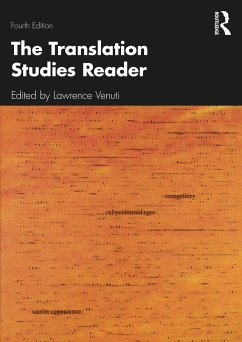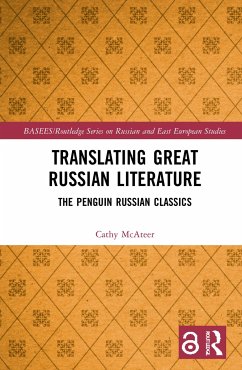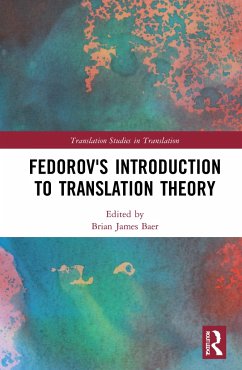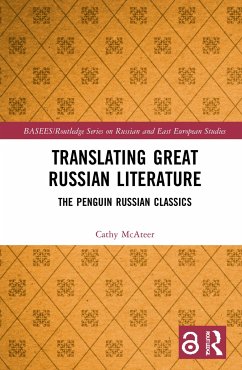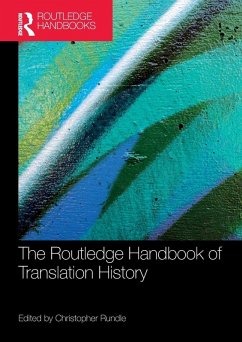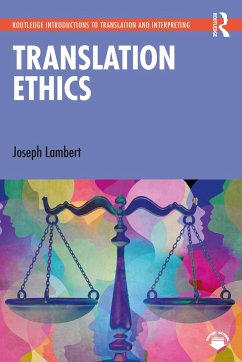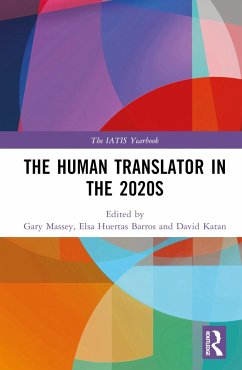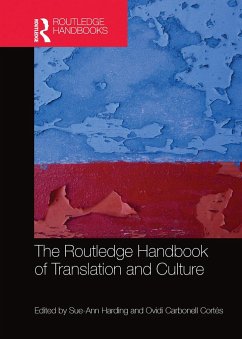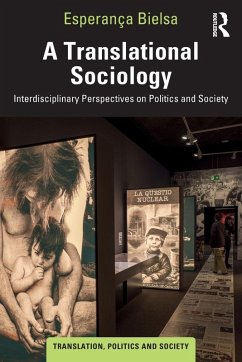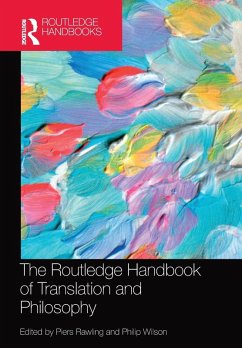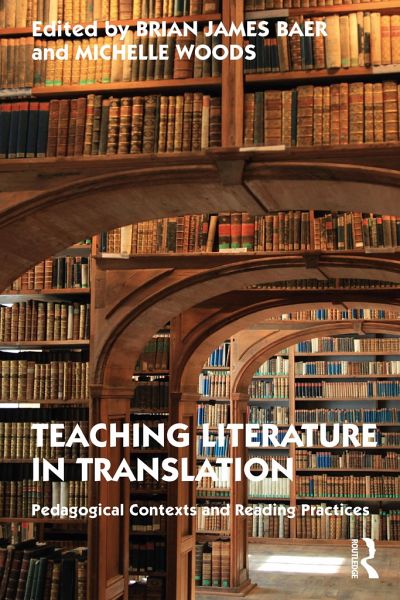
Teaching Literature in Translation
Pedagogical Contexts and Reading Practices
Herausgegeben: Baer, Brian James; Woods, Michelle

PAYBACK Punkte
24 °P sammeln!
The teaching of texts in translation has become an increasingly common practice, but so too has the teaching of texts from languages and cultures with which the instructor may have little or no familiarity. The authors in this volume present a variety of pedagogical approaches to promote translation literacy and to address the distinct phenomenology of translated texts. The approaches set forward in this volume address the nature of the translator's task and how texts travel across linguistic and cultural boundaries in translation, including how they are packaged for new audiences, with the ai...
The teaching of texts in translation has become an increasingly common practice, but so too has the teaching of texts from languages and cultures with which the instructor may have little or no familiarity. The authors in this volume present a variety of pedagogical approaches to promote translation literacy and to address the distinct phenomenology of translated texts. The approaches set forward in this volume address the nature of the translator's task and how texts travel across linguistic and cultural boundaries in translation, including how they are packaged for new audiences, with the aim of fostering critical reading practices that focus on translations as translations.
The organizing principle of the book is the specific pedagogical contexts in which translated texts are being used, such as courses on a single work, survey courses on a single national literature or a single author, and courses on world literature. Examples are provided from the widest possiblevariety of world languages and literary traditions, as well as modes of writing (prose, poetry, drama, film, and religious and historical texts) with the aim that many of the pedagogical approaches and strategies can be easily adapted for use with other works and traditions. An introductory section by the editors, Brian James Baer and Michelle Woods, sets the theoretical stage for the volume.
Written and edited by authorities in the field of literature and translation, this book is an essential manual for all instructors and lecturers in world and comparative literature and literary translation.
The organizing principle of the book is the specific pedagogical contexts in which translated texts are being used, such as courses on a single work, survey courses on a single national literature or a single author, and courses on world literature. Examples are provided from the widest possiblevariety of world languages and literary traditions, as well as modes of writing (prose, poetry, drama, film, and religious and historical texts) with the aim that many of the pedagogical approaches and strategies can be easily adapted for use with other works and traditions. An introductory section by the editors, Brian James Baer and Michelle Woods, sets the theoretical stage for the volume.
Written and edited by authorities in the field of literature and translation, this book is an essential manual for all instructors and lecturers in world and comparative literature and literary translation.





